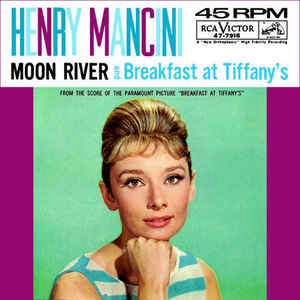Lyrics are words that make up a song, usually consisting of verses and choruses. The writer of lyrics is a lyricist. The words to an extended musical composition such as an opera are, however, usually known as a "libretto" and their writer, as a "librettist". The meaning of lyrics can either be explicit or implicit. Some lyrics are abstract, almost unintelligible, and, in such cases, their explication emphasizes form, articulation, meter, and symmetry of expression. Rappers can also create lyrics that are meant to be spoken rhythmically rather than sung.

"American Pie" is a song by American singer and songwriter Don McLean. Recorded and released on the American Pie album in 1971, the single was the number-one US hit for four weeks in 1972 and also topped the charts in Australia, Canada, and New Zealand. In the UK, the single reached number 2, where it stayed for 3 weeks, on its original 1971 release and a reissue in 1991 reached No. 12. The song was listed as the No. 5 song on the RIAA project Songs of the Century. A truncated version of the song was covered by Madonna in 2000 and reached No. 1 in several countries, including the United Kingdom, Canada, and Australia. McLean's combined version is the fourth longest song to enter the Billboard Hot 100, in addition to being the longest song to reach number one.

"Happy Birthday to You", also known as "Happy Birthday", is a song traditionally sung to celebrate a person's birthday. According to the 1998 Guinness World Records, it is the most recognized song in the English language, followed by "For He's a Jolly Good Fellow". The song's base lyrics have been translated into at least 18 languages. The melody of "Happy Birthday to You" comes from the song "Good Morning to All", which has traditionally been attributed to American sisters Patty and Mildred J. Hill in 1893, although the claim that the sisters composed the tune is disputed.
Walter Donaldson was an American prolific popular songwriter and publishing company founder, composing many hit songs of the 1910s, 1920s, 1930s, and 1940s, that have become standards and form part of the Great American Songbook.

Bernard John Taupin is an English lyricist, poet, singer and artist. He is best known for his long-term collaboration with Elton John, having written the lyrics for most of John's songs.

The "Battle Hymn of the Republic", also known as "Mine Eyes Have Seen the Glory" outside of the United States, is a popular American patriotic song by the abolitionist writer Julia Ward Howe.

Harold Arlen was an American composer of popular music, who composed over 500 songs, a number of which have become known worldwide. In addition to composing the songs for the 1939 film The Wizard of Oz, including "Over the Rainbow", Arlen is a highly regarded contributor to the Great American Songbook. "Over the Rainbow" was voted the 20th century's No. 1 song by the Recording Industry Association of America (RIAA) and the National Endowment for the Arts (NEA).

"Auld Lang Syne" is a Scots-language poem written by Robert Burns in 1788 and set to the tune of a traditional folk song. It is well known in many countries, especially in the English-speaking world, its traditional use being to bid farewell to the old year at the stroke of midnight on New Year's Eve. By extension, it is also sung at funerals, graduations, and as a farewell or ending to other occasions. The international Scouting movement in many countries uses it to close jamborees and other functions.
Paul Francis Webster was an American lyricist who won three Academy Awards for Best Original Song and was nominated sixteen times for the award.

Stephen Lawrence Schwartz is an American musical theater lyricist and composer. In a career spanning over four decades, Schwartz has written such hit musicals as Godspell (1971), Pippin (1972), and Wicked (2003). He has contributed lyrics to a number of successful films, including Pocahontas (1995), The Hunchback of Notre Dame (1996), The Prince of Egypt, and Enchanted (2007). Schwartz has won the Drama Desk Award for Outstanding Lyrics, three Grammy Awards, three Academy Awards, and has been nominated for six Tony Awards. He received the 2015 Isabelle Stevenson Award, a special Tony Award, for his commitment to serving artists and fostering new talent.

"Moon River" is a song composed by Henry Mancini with lyrics by Johnny Mercer. It was originally performed by Audrey Hepburn in the 1961 movie Breakfast at Tiffany's, winning an Academy Award for Best Original Song. The song also won the 1962 Grammy Awards for Record of the Year and Song of the Year.

"Jingle Bells" is one of the best-known and commonly sung American songs in the world. It was written by James Lord Pierpont (1822–1893) and published under the title "The One Horse Open Sleigh" in the autumn of 1857. It has been claimed that it was originally written to be sung by a Sunday school choir, or as a drinking song. Although it has no original connection to Christmas, it became associated with Christmas music and the holiday season in the 1860s and 1870s, and it was featured in a variety of parlor song and college anthologies in the 1880s. It was first recorded in 1889 on an Edison cylinder; this recording, believed to be the first Christmas record, is lost, but an 1898 recording also from Edison Records survives.

"O Tannenbaum" is a German Christmas song. Based on a traditional folk song which was unrelated to Christmas, it became associated with the traditional Christmas tree by the middle of the 19th century and sung as a Christmas carol.
"Have Yourself a Merry Little Christmas" is a song written in 1943 by Hugh Martin and Ralph Blane and introduced by Judy Garland in the 1944 MGM musical Meet Me in St. Louis. Frank Sinatra later recorded a version with modified lyrics. In 2007, ASCAP ranked it the third most performed Christmas song during the preceding five years that had been written by ASCAP members. In 2004 it finished at No. 76 in AFI's 100 Years...100 Songs rankings of the top tunes in American cinema.
"Carol of the Bells" is a popular Christmas carol, with music by Ukrainian composer Mykola Leontovych in 1914 and lyrics by Peter J. Wilhousky. The song is based on the Ukrainian folk chant "Shchedryk". Wilhousky's lyrics are under copyright protection ; the music is in the public domain.
"Summertime" is an aria composed in 1934 by George Gershwin for the 1935 opera Porgy and Bess. The lyrics are by DuBose Heyward, the author of the novel Porgy on which the opera was based, although the song is also co-credited to Ira Gershwin by ASCAP.
"Winter Wonderland" is a song written in 1934 by Felix Bernard and lyricist Richard Bernhard Smith. Due to its seasonal theme, it is often regarded as a Christmas song in the Northern Hemisphere. Since its original recording by Richard Himber, it has been covered by over 200 different artists.

"The 500 Greatest Songs of All Time" was the cover story of a special issue of Rolling Stone, issue number 963, published in December 2004, a year after the magazine published its list of "The 500 Greatest Albums of All Time". The list was subsequently updated in 2010.
"The Wayfaring Stranger", Roud 3339, is a well-known American folk and gospel song likely originating in the early 19th century about a plaintive soul on the journey through life. As with most folk songs, many variations of the lyrics exist and many versions of this song have been published over time by popular singers, often being linked to times of hardship and notable experiences in the singers lives, such as the case with Burl Ives' autobiography.
"Keep Your Eyes on the Prize" is a folk song that became influential during the American Civil Rights Movement of the 1950s and 1960s. It is based on the traditional song, "Gospel Plow," also known as "Hold On," "Keep Your Hand on the Plow," and various permutations thereof.










